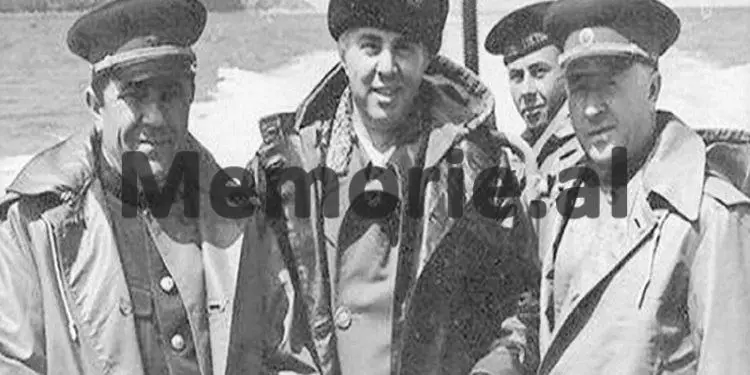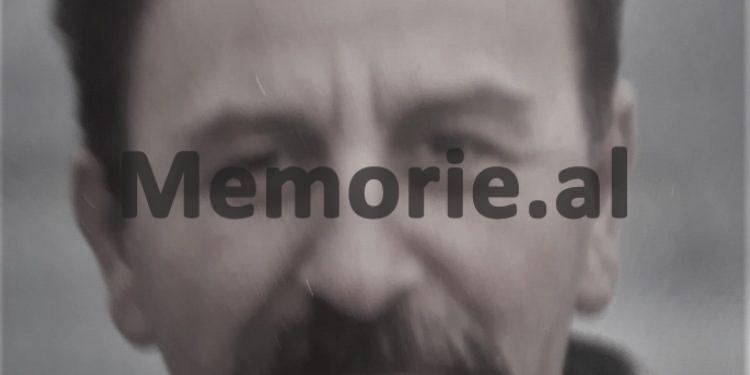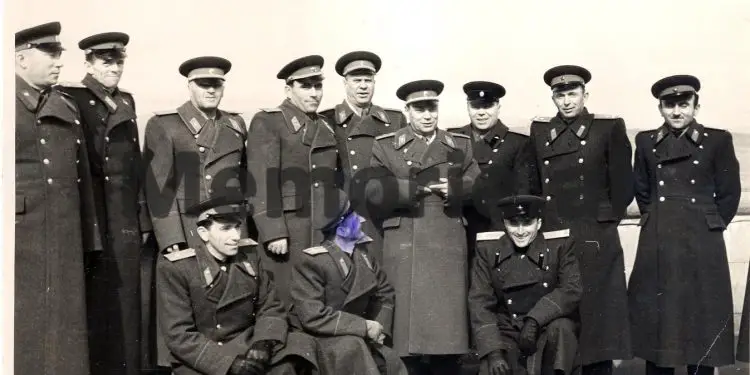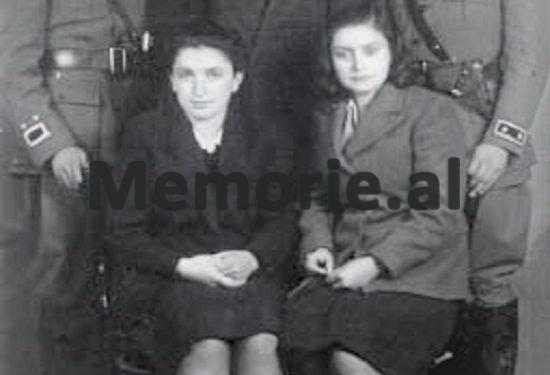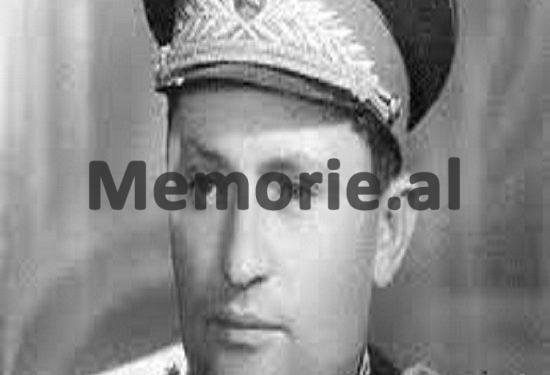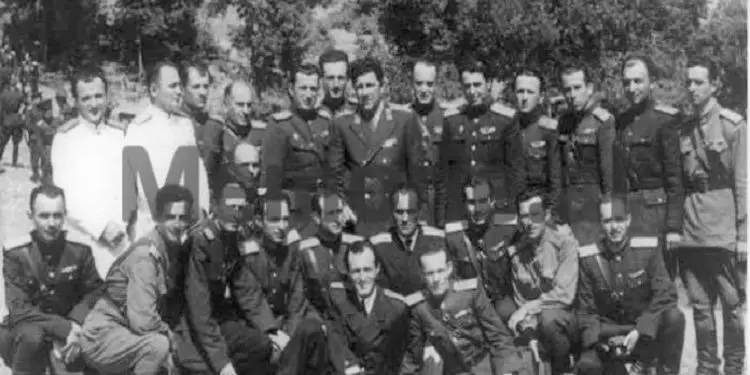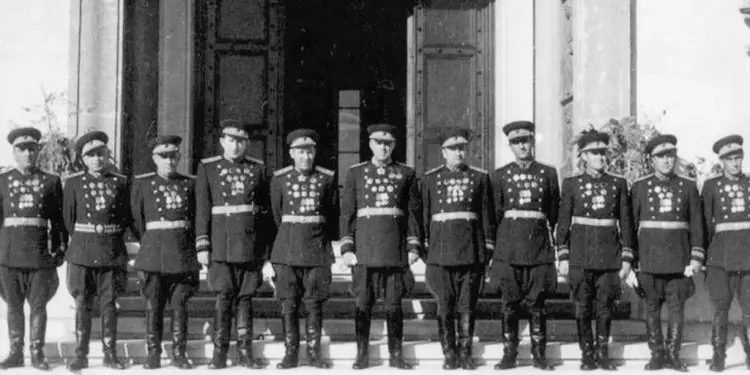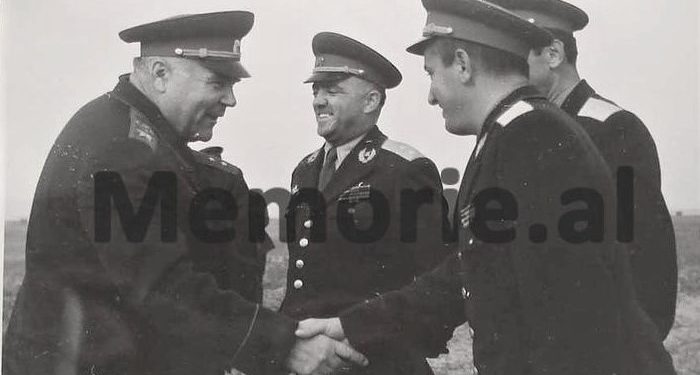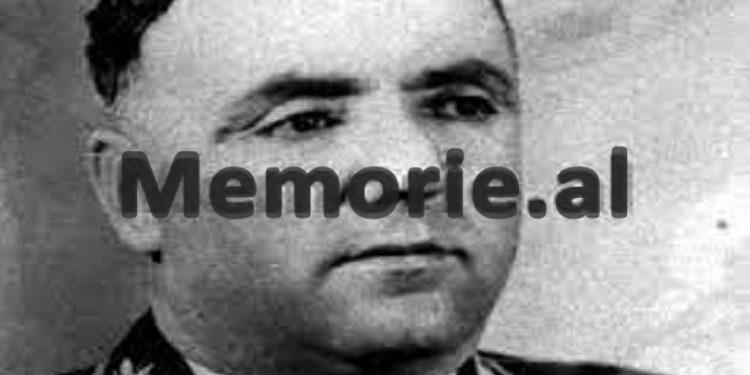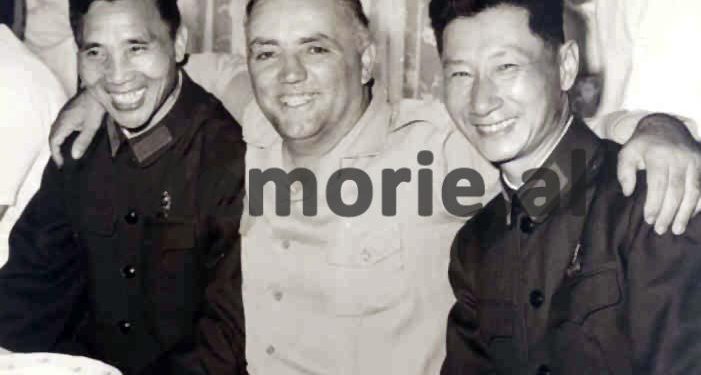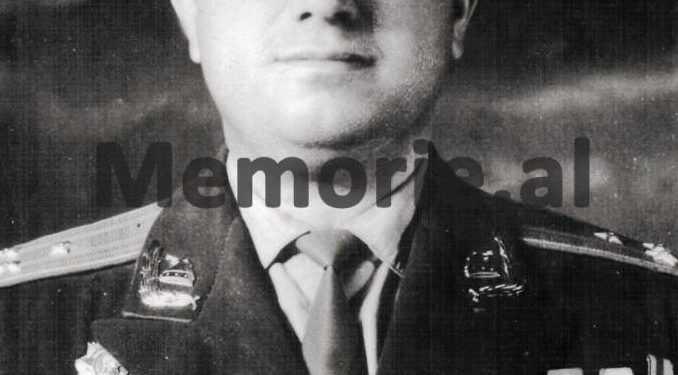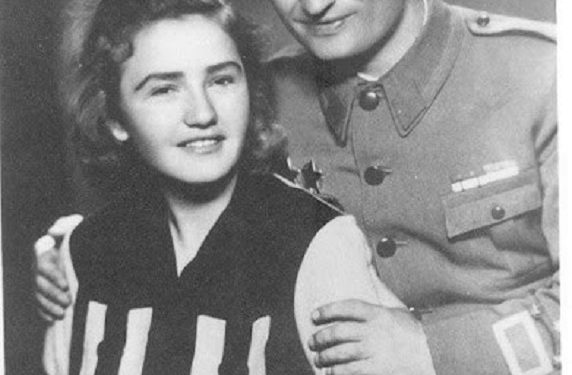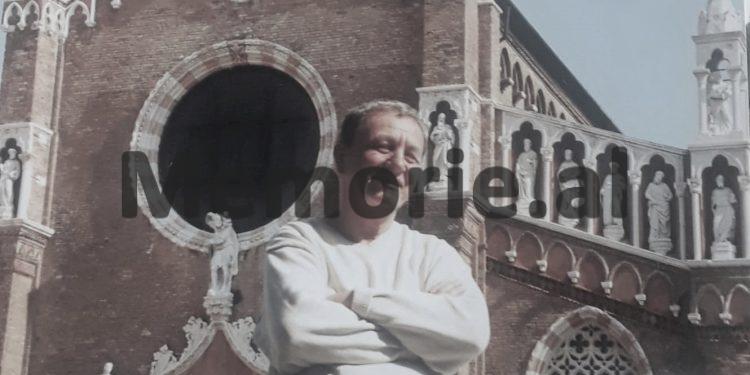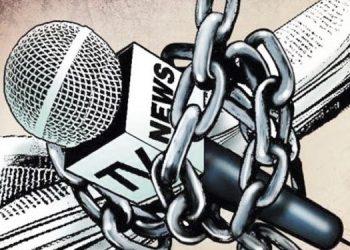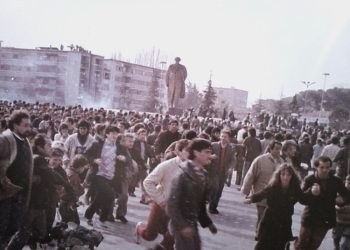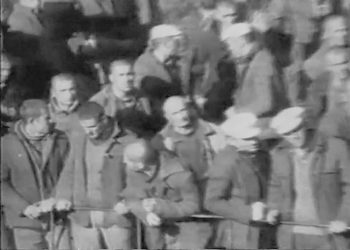By Bashkim Trenova
Part fifty
Memorie.al publishes the memoirs of the well-known journalist, publicist, translator, researcher, writer, playwright and diplomat, Bashkim Trenova, who after graduating from the Faculty of History and Philology of the State University of Tirana, in 1966 was appointed a journalist at Radio- Tirana in its Foreign Directorate, where he worked until 1975, when he was appointed journalist and head of the foreign editorial office of the newspaper ‘Zeri i Popullit’, a body of the Central Committee of the ALP. In the years 1984-1990, he served as chairman of the Publishing Branch in the General Directorate of State Archives and after the first free elections in Albania, in March 1991, he was appointed to the newspaper ‘Rilindja Demokratike’, initially as deputy / editor-in-chief and then its editor-in-chief, until 1994, when he was appointed to the Ministry of Foreign Affairs with the position of Press Director and spokesperson of that ministry. In 1997, Trenova was appointed Ambassador of Albania to the Kingdom of Belgium and to the Grand Duchy of Luxembourg. Unknown memories of Mr. Trenova, starting from the War period, his childhood, college years, professional career as a journalist and researcher at Radio Tirana, the newspaper ‘Zeri i Popullit’ and the Central State Archive, where he served until the fall of the communist regime of Enver Hoxha, a period of time when he in different circumstances met many of his colleagues, suckers of some of the ‘reactionary families’, etc., whom he described with a rare skill in a book of memoirs published in 2012, entitled ‘Enemies of the people’ and now brings them to the readers of Memorie.al
Continued from the previous issue
WITH “HEROES OF THE PEOPLE”
POLITICAL BUREAU AND THE PRESIDENCY
Several trucks had arrived to transport the bodies left on the road like cow dung. This is how we were actually treated. Hysniu tells me to get up and get on one of the oncoming trucks before they leave. I had neither a thread of strength nor enough to get to the nearest truck. “Go away, I will reach you tomorrow,” I told Hysni. He refused to leave and leave me there abandoned, alone. Finally, as if we were heading towards the firing squad, assisted by Hysniu, we took the steps together to the truck that was being filled with the “heroes” of great training, or more precisely, of great madness. Military exercises or military “games” of this magnitude were officially justified by slogans such as: “Defending the Homeland is duty upon duty.” Perhaps the delirium did not allow the communist dome to see reality clearly. No one would sacrifice to defend a Homeland turned by her into hell for all the people. No one saw worse than hell, it happened anyway. Moreover, when the Homeland was officially united with the Party and the Party with Enver Hoxha.
How the Albanian military graduated in the academies of the Soviet Union, without knowing the Russian language at all!
During the years of democracy, in the nostalgic press of the Albanian communism, an interview was published where Petrit Dumja is evaluated as a great general. I am not able to say whether he really was or not. Judging by the great training, in which I also participated, it seems to me that his greatness, as well as that of many other generals, is pumped up. It seems to me that they became “big” by Enver Hoxha and what they became as such was done by Enver Hoxha. I know that some even graduated from military academies in the Soviet Union, as I also know that some of them, even without knowing the Russian language, have received diplomas from these academies. They passed the exams with translators. The Albanian students of these academies have served as translators. These, in fact, did not translate the general taking the exam. The general was only physically present. He only needed to speak Albanian. The rest of the work was done by Albanian students. I once met one of these generals in a regular training. He was very strict with me, because I called the weapon in front of me on the ground “anti-tank” and not “anti-tank”. I told him both could be used. He was noticed, enraged by my “rebellion”. Then, to defend myself, I said, “Comrade General, why do we use the word ‘anti-imperialism’ and not ‘anti-imperialism?’ The general did not know how to respond. There were “political” and “ideological” reasons for not answering. All the speeches of Dictator Enver Hoxha and the Party materials used the word “anti-imperialism” and not “anti-imperialism”.
Enver Hoxha’s accusation that Petrit Dume and other generals would surround the Central Committee of the PPS with tanks!
I have not had another chance to meet Petrit Dumen. Years later he and several other generals were arrested and sentenced to death as traitors to the Homeland, the Party and Comrade Enver Hoxha. He and other generals were accused of being conspirators, who had planned the tank siege of the Central Committee of the Party, the elimination of Enver Hoxha and the overthrow of popular power or the dictatorship of the proletariat. In the Central Committee Petrit Dumen was convicted without being allowed to explain, even formally. These words of Enver Hoxha were enough: “Friends, based on your proposals, Petrit Dume should be expelled from the Party and given to the court! Do you agree with this proposal? (All friends unanimously approved the proposal). “Then Petrit Dume, hand over the card and go out.” Enver Hoxha used the members of the Central Committee as chess pieces. He seems to do nothing but approve a proposal of theirs and then asks them themselves if they agree with what they have proposed. This is how “democracy” was implemented in the Party!
Petrit Dume, not many years ago, had threatened us with the Military Court. Who would have thought then that he himself, together with the ‘People’s Hero’, the Minister of Defense, Beqir Balluku and the Director of the Political Directorate at the Ministry of Defense, the ‘People’s Hero’, Hito Çako, would be convicted by this Court?! They were executed with a bullet in the head in one of the tunnels of Dajti Mountain near the capital. Before the execution, Petrit Dume said: “Long lives the Party, long live Albania”! He had to die not to say: “Long lives Enver Hoxha”! Neither he nor any of those who were executed together with him, even on the extreme border between life and death, dared to say: “Down with Enver Hoxha”! Maybe they thought about the children, about their families. They, better than others, knew that the dictator’s revenge was limitless.
From reading the minutes of the Plenum of the Central Committee, which condemned Petrit Dumen, he concludes that all participants in this Plenum, as always when there was a call for beheading by the dictator, rush to put on a feverish race to throw mountains with stones on the next victim and to express servile loyalty mixed with slave submission to Enver Hoxha. One of the most extreme, if not the most extreme, is the former Prime Minister Mehmet Shehu. The irony is that a few years later, he himself would be in the same positions as Petrit Dume and would be accused, even, as the leader of the coup group which included, according to the official version, Petrit Dume and other generals.
The whole reality of socialist Albania was surreal. Such was the sentence and execution of Petrit Duma. Even more surreal is then the punishment from the dictatorship of his horse. Since the general’s horse had served a dangerous enemy, as Petrit Dume was called, he too had to pay for the loyalty he had shown to the lord. By a special official decision, this horse was removed from the place where the selected horses were kept and sent to the remote areas of southern Albania, in the mountains of Përmet, to perform difficult work in agriculture, the same as was done with all the internees. As he was a handsome, white horse, in order not to attract the admiration of the peasants, he was cut off his long vests, just as the hair of the prisoners of the dictatorship was cut. Petrit Dume’s horse was released for only a few weeks or a few months from the hard work of agriculture. One of the pioneers of Albanian directing, Gëzim Erebara, with special permission, took him to shoot in his film “The Forest of Freedom”. On this occasion, Petrit Dumes’s horse was fake crests, to replace his own, which had been cut off. The story of Petrit Dume’s horse also prompted, a few years later, another well-known Albanian director, Saimir Kumbaro, to shoot the film “The Death of the Horse.”
MEMBERS OF THE CENTRAL COMMITTEE
How I got to know General Gjin Marku and his family!
I will now descend from my acquaintances or meetings with members of the Politburo its candidates as well as of the Presidency of the People’s Assembly, to a lower degree of the pyramid, to the acquaintances and meetings I have had with some members of the Central Committee of the Party of Labor.
I would like to say a few words about General Gjin Markun, a member of the Central Committee of the Communist Party of Albania since its establishment. In fact, it’s best for me to start with his wife, my Russian teacher at the Red School, Natalia Marku, or Natalia Viriovi.. From her I got to know Gjin Markun somewhat closely, I exchanged a few words with him without any special significance.
I met Natalie in my first or second year of high school. She was a model teacher, with a youthful enthusiasm, even though she was no longer in her teens. She was everywhere and always near each of us, her students. I also told Natalia my first and last verses in Russian, which I keep to this day in my “archive”, along with a few other relics of high school life. They certainly were nothing. I still did not know enough Russian and my concern or pleasure was to save the rhyme at the end of the verse. She made the necessary corrections, thus breaking my rhyme, which I had so hard to find and adjust! She created at school a circle of young writers who would write in Russian. I was one of the participants in this activity, which did not last long. Our respected pedagogy supported us and encouraged us to write. Thus we, talented or not talented, however practicing or practicing the Russian language, enriched the vocabulary and the still poor baggage of expressions in Russian. Maybe Natalia had found this activity as a way to get her students involved in learning a difficult language, such as Russian for us. The circle of writers was a beautiful “trap” of hers, although she personally not only was not a man of traps but, with her sincerity and devotion, she could be endangered by many of them.
Natalia came to Albania after meeting Gjin Marku, who in December 1944 and in the spring of 1945, at the head of the VI Division, crossed the Albanian state border to help liberate several cities in Montenegro. , in Bosnia and Kosovo. Gjin Marku married the beautiful Slavic girl in 1947. In 1948 they would have a daughter, whom they would name Svjetllana. Within a few years Svjetlana became two brothers and a sister. Gjin Marku lived in a beautiful two-storey villa on Qemal Stafa Street, near the Red School. I often saw him and his children as well as my teacher as they came and went from their happy, noiseless apartment. A car and its driver, Titus of Lakes, were always waiting on the sidewalk in front of the house. This quiet life, why not comfortable, would not last long for Gjin Markut’s family. One of the main founders of the Albanian Communist Party, one of the main leaders of the large partisan formations of the anti-fascist resistance, he would become a victim of dictatorship.
Gjin Marku and 46 political prisoners from Burrel prison expressed their loyalty to Enver Hoxha!
At the First Congress of the Albanian Communist Party, in 1948, Gjin Marku sharply criticized the senior leadership of the Party and Enver Hoxha. He did not hesitate to take revenge. Thus, in 1950 he was convicted together with General Nexhip Vincani, on the charge that they were against the leadership of the General Staff of the Army. Subsequently, with false accusations, he was removed from the Army and appointed farm director in Llakatund, Vlora. In 1963 or 1964, Gjini was interned in the south of Albania, on the island of Zvërnec in Vlora. His wife and children are interned in the village of Hoxharë in Fier. They thus separated them alive. But this was only the beginning of the dictator’s revenge. Years later, after being barbarically tortured by the investigator, he also tried the High Security prison in Burrel. After a legal farce, he is sentenced to 10 years in prison on charges of “agitation and propaganda for undermining, weakening and overthrowing the popular power”! Three days before the end of his sentence, he is sentenced to another 10 years in prison on the same charge. Three days before the end of 20 years of imprisonment, he died in the prison hospital without being able, at least, to be buried free. Gjin Marku was buried by the police without any funeral ceremony and why, tragically, until the end of his life, he never blamed the dictator for his fate. Gjini kept the trust in him intact as well as many other prisoners, who shared the same fate with him for decades! There were 46 political prisoners in Burel’s prison, victims of the dictator’s brutality, intrigue and combinations, who continued to express their loyalty to him!
From what I have read and heard about Gjin Marku, I believe that he was sincere when even in prison he declared his loyalty to the dictator and believed that the latter did not know his condition, that there were others, Prime Minister Mehmet Shehu and those around him, those who had hanged him, first in exile, and then in the cells of Burrell Prison. The dictator often during his rule had used as a card of honesty and purity his ignorance of the acute problems of society, the very brutality of the dictatorship. He has often claimed that they locked him or wanted to lock him in an ivory cage, to isolate him from the people and from the communists, consequently, to eliminate him personally and to overthrow the popular power! Indeed, this was a diabolical fabrication of his destined for mass consumption. In this “trap” fell intentionally or not, for opportunism or fear, most members of the Central Committee of the Albanian Labor Party, fell those who knew that nothing could be done without the knowledge and consent of Enver Hoxha. Seen from this point of view, it is not excluded that Gjin Marku, like others, has expressed loyalty to the dictator even simply to protect the family, to save him from the blow of the dictatorship, to alleviate this blow no matter how little.
This view is not heroic, but it is human and the human often does not need the heroine, just does not recognize or challenge her. Either way, Gjin Marku was lost. Stalin, Enver, like all dictators, were paranoid. For omnipotent people paranoia serves as the safety valve of maintaining power by anyone and at any cost. Paranoia knows neither logic, nor friendship, nor loyalty, nor alliance, nor principles, and nothing sacred and precious. Revenge of the dictatorship, as in all similar cases, would fall heavily on Natalian and her children as well. A son of Gjin Markut, he would be arrested and convicted on the same charge as his father. Natalia would suffer not only the endless years of internment, not only the imprisonment of her husband and son, but also discrimination in Albanian society, loss of the right to higher education for children, systematic persecution by the State Security organs, poverty and deep economic misery.
How the communist regime rewarded General Gjin Markut’s wife for her contribution to education!
The suffering and torture that accompanied the “life” of my teacher, Natalie Marku, for several decades did not break her courage and spirit. Her health, meanwhile, would take a downturn to never rise again. Many of her lovers and her children, when talking about Natalina, say that she is seriously ill, or “extremely ill”. They say only that, because they do not want to claim the tragic truth that it is psychologically too severe, that this reality is the punishment that the dictatorship gave it, the reward for the generations of Albanians who educated in Albania and for the generations of Albanians who helped and saved Kosovo.
Natalia Viriovi,, was of Slavic origin. Her father was Montenegrin and her mother Serbian. She, along with her sister and brother, took an active part in the anti-fascist resistance. The Virevic family was respected throughout Kosovo during that period. After the war, many Kosovo Albanians faced the charge of collaborating with the enemy. Dozens and hundreds of them found refuge and protection in Natalia and her brother. Natalia Virievic gave them evidence, as if they had been part of anti-fascist formations, or as if they had helped the Anti-Fascist Movement. The Yugoslav communist leadership pursued a policy of genocide against Kosovo Albanians at the time and then. The accusation that thousands and tens of thousands of them were made as “collaborators of the enemy” also served this purpose! Natalia gave an example, which cannot but enjoy deep gratitude even today, which are not far from the years of great Serbian nationalist barbarism in the former Yugoslavia.
Democracy gave Natalia freedom, but it was too late, a crippled freedom, which housed her for a long time in a tent in the courtyard of hospitals in Tirana, with a family in economic condition below the subsistence level, a freedom that cannot be restored the joy of life nor can it erase the wounds and memories of the past. I once met Svjetlana, the daughter of Natalia and Gjin Marku, in the editorial office of the newspaper “Rilindja Demokratike” where I worked in the early 90’s. I do not remember why he came. In those years, our editorial office was “flooded” every day and every hour by tens and hundreds of kind, supportive, Halle citizens. It was impossible to contact and listen to them all. Someone introduced me to Svjetlana, adding – “Gjin Markut’s daughter”. I, who had known Natalie, spotted in Svjetlana another Natalie, not younger than the one I had known in my high school years, but with the same vivacity and determination, with graceful features, that she certainly inherited from her mother. I was pretty sure of that. I had learned about the plight of her mother and my teacher from 1958-1959, I wanted to say a word to her, but I did not say anything, I could not find the right word or, better yet, I did not want to I hear her answer, to hurt her again, to part in this way with both Natalies.
Like the family of Gjin Marku, the same “luck” had that of Xhavit Qeses!
The fate of Meriban, Xhavit and their children, Salvation and Good, is similar. Meribani was my mother’s friend. Both had been at the forefront of Albanian anti-fascist women. Meribani, as dictator Hoxha himself wrote in his memoirs, was one of the first five communist women in Albania, along with Drita Kosturi, who spent her entire life persecuted by the dictatorship, Liri Gega, shot in the abdomen with a baby. Fiqirete Shehu, who died in prison in dark circumstances and his wife, Nexhmije Hoxha. She was one of the only two partisans to take the podium next to Enver Hoxha and other leaders of the Albanian Communist Party, in the grand parade of victory held on November 28, 1944 on the main boulevard of the capital. A few years later, she too would feel her family being ruthlessly destroyed by the class war. He was forced to raise his fatherless son and daughter, to live in constant fear that one day both she and her children could suffer his fate.
Meriban’s husband, Xhavit Qesja, former commissioner of the 23rd Partisan Brigade, MP and member of the Central Committee of the Party, Political Secretary of the Shkodra and Berat Districts, was arrested in 1958 as an “enemy of the people.” He suffered 32 years in prison and internment because he opposed Enver Hoxha. Being a student of Philosophy at the Party High School in the former Soviet Union, he unreservedly supported the decisions of the XX Congress of the Soviet Communist Party. Enver Hoxha did not agree with the decisions of this congress, which he would later describe as a congress of betrayal of communism. Xhaviti was ordered from Tirana to stop his studies and return immediately to his homeland. Immediately after his return he was interned in the Zvërnec camp, near Vlora. In this camp, at that time, were kept isolated some of the former senior officials of the Labor Party, whom Enver Hoxha had declared enemies. Immediately after Xhavit was interned, Meriban was fired from his job in the apparatus of the Council of Ministers. Initially she was not allowed to meet her husband. She was then summoned to the meeting by Fiqrete Shehu, then Party Secretary for the capital. Fiqretja asked Meriban to divorce Xhavit. Meribani told my mother that she had asked Fiqreta, why should she get a divorce?! Fiqretja told her not to ask any more, that the Party knew this and that her husband was an enemy of the Party. To protect the children, Meribani, in pain in his soul, legally separated from Xhavit.
In order to protect the children, Meribani was forced to interpret the events of the years of the Anti-Fascist War to the satisfaction of Nexhmije Hoxha and Fiqirete Shehu, the wife of the former Albanian Prime Minister Mehmet Shehu. My mother told me that during the Italian occupation of Albania, the anti-fascist women of Tirana organized a demonstration in front of the city prison. This demonstration demanded that the fascists not deport Albanian anti-fascist prisoners to the islands of Italy. About 30 women took part in the demonstration. There were not many, but there were not many if we consider that it was done in the conditions of a semi-feudal occupied country, such as Albania of that time, a country where ignorance reigned and where women had a place at home, near children. A woman, the ‘People’s Heroine’, Mine Peza, was killed by fascist bullets in the demonstration. Fiqrete Shehu had to lead it. She did not come. It was Meribani who came out on top of the women who clashed with the fascists. After the war, this demonstration was constantly commemorated in various meetings and conferences attended by Meribani, Nexhmija, the dictator’s wife, or Fiqret, the wife of the former prime minister. After Xhavit was interned and imprisoned, Meribani had to say that this demonstration was led by Fiqrete Shehu. The former prime minister’s wife proudly acknowledged this untruth, even though she had not even taken part in it. After Mehmet Shehu was killed or committed suicide and Fiqrete Shehu was imprisoned as an enemy of the people, Meriban would have to show another version of the Tirana women’s demonstration. She had to prove how the women’s demonstration was conducted, now not by Fiqerete Shehu, but by Nexhmije Hoxha. This, like Fiqret, listened to and accepted this with pride. My mother has been present at these meetings or conferences. Memorie.al
The next issue follows




